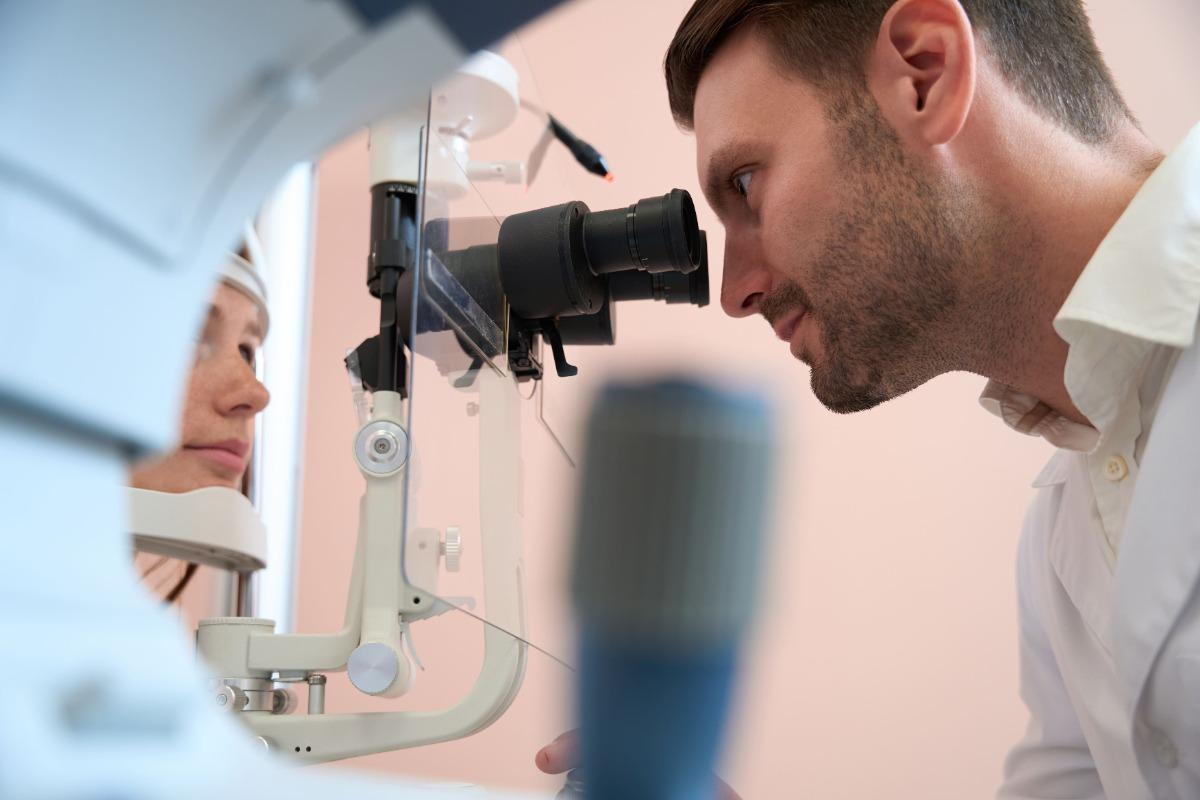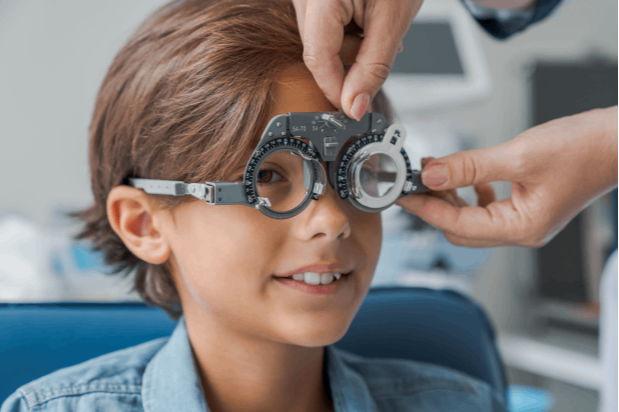All Categories
Featured
Unlocking Opportunities: Comprehensive Low Vision Recovery Alternatives.
Living with low vision can provide distinct difficulties, however contemporary rehabilitation methods equip people to adjust and thrive. From advanced technology to hands-on training, there are many options created to enhance day-to-day live and foster self-reliance. Right here's a detailed look at the diverse rehabilitation solutions available for those with reduced vision.
The Function of Reduced Vision Rehab
Reduced vision recovery concentrates on aiding individuals enhance their remaining vision and establish abilities to manage their surroundings. With a combination of devices, training, and customized support, recovery programs improve capability and increase confidence in navigating everyday tasks.
Secret Low Vision Rehab Options
Custom-made Visual Aids
High-Powered Magnifiers: These devices are available in handheld, wearable, or electronic layouts, permitting users to check out, write, or sight objects up close.
Telescopic Glasses: Suitable for enhancing range vision, these glasses assist with activities such as viewing television or analysis signs.
![]()
Filter Lenses: Tinted lenses minimize glow, enhance comparison, and offer UV security, enhancing convenience and presence.
Technological Developments
Digital Zoom Devices: Desktop computer and mobile devices use adjustable magnifying, enabling easier access to published materials and digital content.
![]()
Voice-Assisted Innovation: Display readers, voice-enabled smart devices, and AI-driven applications assist individuals navigate the electronic globe extra effectively.
Wearable Vision Aids: Smart glasses outfitted with cameras and acoustic comments supply real-time support with reading, recognizing things, and spatial alignment.
Specialist Training Programs
Positioning and Mobility Training: This program instructs people how to move confidently within their homes and neighborhoods, typically integrating walking sticks or guide dogs.
Daily Living Skills: Specialized training gears up individuals with methods to execute essential jobs such as cooking, clothing, and managing family duties.
Flexible Visual Techniques: Specialists guide patients on leveraging outer vision or scanning techniques to make up for vision loss.
Ecological Modifications
![]()
Basic adjustments at home or job can considerably enhance accessibility:
Using different shades for better object distinction.
Including job lighting to improve exposure.
Noting home appliances with responsive signs for simpler operation.
Psychological and Social Support
Coping with vision loss commonly involves psychological changes. Assistance groups and counseling solutions use a risk-free room to share experiences and develop durability.
Peer mentoring programs link people with comparable challenges, fostering camaraderie and shared options.
Accessing Rehab Solutions
Low vision rehab solutions are widely readily available with:
Specialized Clinics: Ophthalmologists and eye doctors learnt reduced vision treatment provide tailored assessments and services.
Nonprofit Organizations: Teams like the American Foundation for the Blind and VisionAware provide sources, advice, and references.
Neighborhood Centers: Neighborhood services may supply cost-free or affordable training and accessibility to assistive devices.
Final Ideas
Low vision does not need to indicate a diminished quality of life. With the ideal mix of devices, training, and support, individuals can reclaim self-reliance and enjoy satisfying lives. By discovering the numerous recovery alternatives offered, those with reduced vision can find techniques that work best for their distinct needs and situations. If you or an enjoyed one encounters vision challenges, don't wait to connect to a reduced vision expert to start the journey towards empowerment and adaptability.
Living with low vision can provide distinct difficulties, however contemporary rehabilitation methods equip people to adjust and thrive. From advanced technology to hands-on training, there are many options created to enhance day-to-day live and foster self-reliance. Right here's a detailed look at the diverse rehabilitation solutions available for those with reduced vision.
The Function of Reduced Vision Rehab
Reduced vision recovery concentrates on aiding individuals enhance their remaining vision and establish abilities to manage their surroundings. With a combination of devices, training, and customized support, recovery programs improve capability and increase confidence in navigating everyday tasks.
Secret Low Vision Rehab Options
Custom-made Visual Aids
High-Powered Magnifiers: These devices are available in handheld, wearable, or electronic layouts, permitting users to check out, write, or sight objects up close.
Telescopic Glasses: Suitable for enhancing range vision, these glasses assist with activities such as viewing television or analysis signs.

Filter Lenses: Tinted lenses minimize glow, enhance comparison, and offer UV security, enhancing convenience and presence.
Technological Developments
Digital Zoom Devices: Desktop computer and mobile devices use adjustable magnifying, enabling easier access to published materials and digital content.

Voice-Assisted Innovation: Display readers, voice-enabled smart devices, and AI-driven applications assist individuals navigate the electronic globe extra effectively.
Wearable Vision Aids: Smart glasses outfitted with cameras and acoustic comments supply real-time support with reading, recognizing things, and spatial alignment.
Specialist Training Programs
Positioning and Mobility Training: This program instructs people how to move confidently within their homes and neighborhoods, typically integrating walking sticks or guide dogs.
Daily Living Skills: Specialized training gears up individuals with methods to execute essential jobs such as cooking, clothing, and managing family duties.
Flexible Visual Techniques: Specialists guide patients on leveraging outer vision or scanning techniques to make up for vision loss.
Ecological Modifications

Basic adjustments at home or job can considerably enhance accessibility:
Using different shades for better object distinction.
Including job lighting to improve exposure.
Noting home appliances with responsive signs for simpler operation.
Psychological and Social Support
Coping with vision loss commonly involves psychological changes. Assistance groups and counseling solutions use a risk-free room to share experiences and develop durability.
Peer mentoring programs link people with comparable challenges, fostering camaraderie and shared options.
Accessing Rehab Solutions
Low vision rehab solutions are widely readily available with:
Specialized Clinics: Ophthalmologists and eye doctors learnt reduced vision treatment provide tailored assessments and services.
Nonprofit Organizations: Teams like the American Foundation for the Blind and VisionAware provide sources, advice, and references.
Neighborhood Centers: Neighborhood services may supply cost-free or affordable training and accessibility to assistive devices.
Final Ideas
Low vision does not need to indicate a diminished quality of life. With the ideal mix of devices, training, and support, individuals can reclaim self-reliance and enjoy satisfying lives. By discovering the numerous recovery alternatives offered, those with reduced vision can find techniques that work best for their distinct needs and situations. If you or an enjoyed one encounters vision challenges, don't wait to connect to a reduced vision expert to start the journey towards empowerment and adaptability.
Latest Posts
Uncover Strathmere’s Coastal Treasure: Enjoy, Dine, and Unwind at Deauville Inn
Published May 15, 25
2 min read
The Benefits of Consistent Auto Maintenance at Montclare Auto Repair Saves You Money
Published May 15, 25
1 min read
Join Your Financial Partner at WyHy – Comprehensive Support for Your Future
Published May 15, 25
1 min read
More
Latest Posts
Uncover Strathmere’s Coastal Treasure: Enjoy, Dine, and Unwind at Deauville Inn
Published May 15, 25
2 min read
The Benefits of Consistent Auto Maintenance at Montclare Auto Repair Saves You Money
Published May 15, 25
1 min read
Join Your Financial Partner at WyHy – Comprehensive Support for Your Future
Published May 15, 25
1 min read